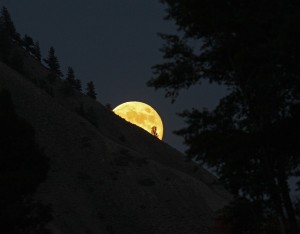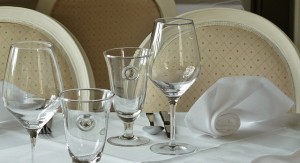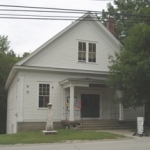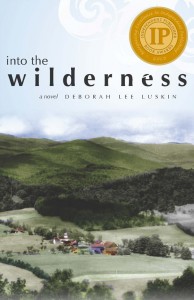
On the night of the first full-moon after the vernal equinox, Jews all over the world celebrate Passover, the holiday marking their escape from slavery in Egypt, including in Williamsville, Vermont. The Jews left Egypt in such haste, the story goes, they didn’t have time for their bread to rise, so they baked it unleavened, inventing matzo.
The festival is observed with a Seder (the word means “order”) and it refers to a meal – okay, a feast – during which the story of the Exodus is retold. Over the millennia, different rituals have developed around the Seder. The traditions of the serving a hard boiled egg and of leaning on cushions at the dinner table probably date to Roman times; the tradition of hiding the Afikoman (a piece of matzo reserved for the end of the meal) probably entered the tradition later, when children needed to be entertained and – yes – bribed to stay interested in a celebration that can take hours.

(image from pixabay)
The service part of the Seder is filled with story telling, song, and symbolic foods. We dip parsley in salt water to taste the bitter tears of slavery; we eat matzo to remind us of the Jews’ haste leaving Egypt. And we bless and drink four cups of wine, making Passover one of my favorite holidays.
The Seder is both ritual and feast, a perfect combination for celebrating with friends. One year, Passover fell on the same weekend as a nearby

whitewater release, and my kayaker-husband brought home some paddlers. Of the twenty-one people at the table, eleven had never attended a Seder before. But they all remembered the story of the Exodus, so we took turns telling it, and had a wonderful celebration of freedom and spring.
But putting on a Seder can be a big deal, so over a decade ago, a handful of neighbors decided to hold a Seder in our lovely community hall, a former grange. This Seder has become an annual tradition in the small village where I live.

(photo-Deborah Lee Luskin)
About thirty people showed up the first year, about half of them Jewish. Word spread, and families from surrounding towns started attending. In time, the venue was moved from the smaller dining room off the hall’s kitchen to the upstairs auditorium in order to accommodate the 95 people who came, one from California.
By now, there are even what I call “Williamsville Traditions” – certain songs that are always part of this seder, a children’s book that’s read, and a particular Haggadah – the program for the service and the meal.
The meal is fantastic. A potluck of holiday treats, from matzo ball soup to potato kugel to braised brisket to coconut macaroons. Traditionally, the service ends with a prayer to end oppression of all people around the world in the coming year. Traditionally, we say, “Next year, in Jerusalem.” But in my town, we say, “Next year, in Williamsville.”

You can listen to an earlier version of this post that was broadcast over the stations of Vermont Public Radio on March 29, 2010.
To receive new posts by email every Wednesday, enter your address in the box on the right, click “subscribe” and then check your email to confirm your subscription. Thanks.
Hi, does one need to make reservations to join in on the Passover seder?
Thanks, Laura
Brookline, VT
Hi Laura,
I passed your name and contact info to one of the organizers, who I hope has been in contact with you. Alas, I won’t be there this year. Maybe next year – in Williamsville. Good Pesach. Deborah.
I love this post. So captures the spirit of Passover and Vermont!
Indeed! Hope your seder was a success.